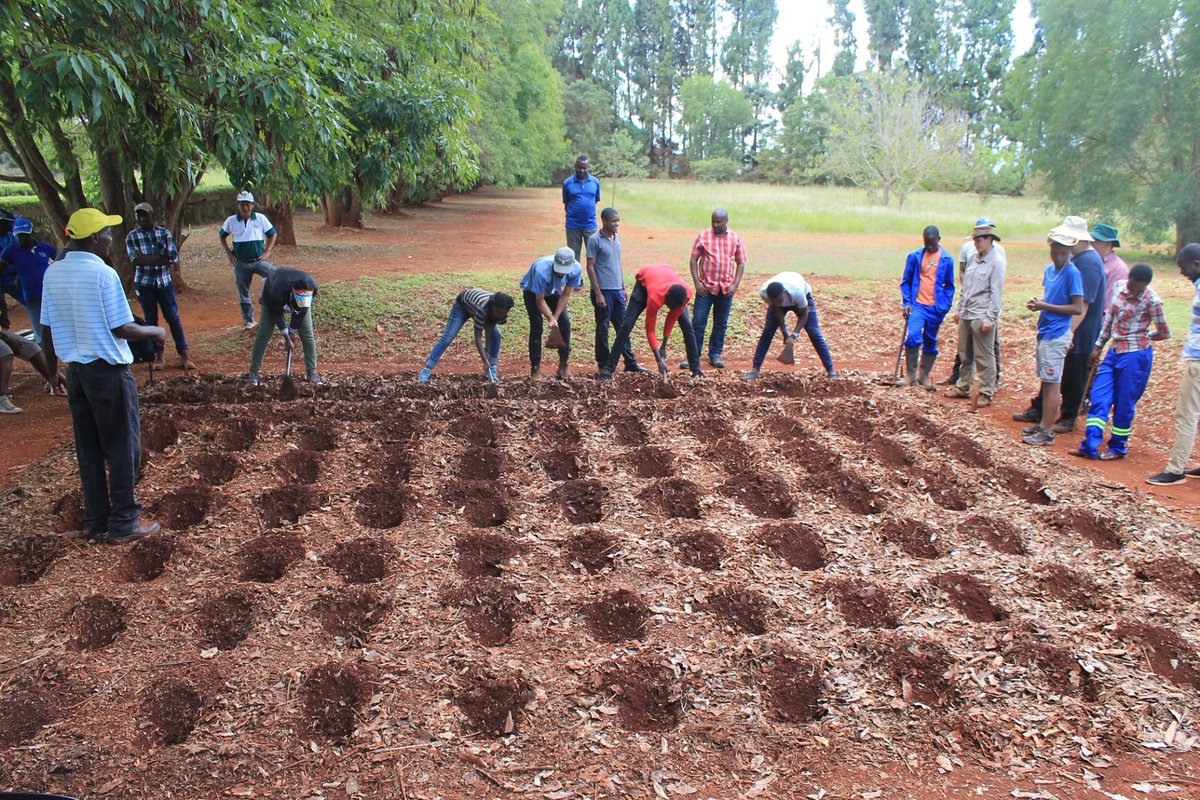Pfumvudza crops outwit dry spell
The Pfumvudza/Intwasa programme has saved Mashonaland Central from the midseason dry spell experienced this year with farmers who practiced the concept faring well compared to others.
Pfumvudza/Intwasa programme was widely embraced in the province with 356 310 farmers participating the year, exceeding the provincial target of 300 000.
The province experienced a false start to the rainy season with the first rains being received in November 2021 followed by a dry spell until January this year.
Farmers planted in January following generous rains, but the following month the province was hit by another dry spell resulting in wilting of crops.
Four districts, Mazowe, Bindura, Guruve and Shamva received good rains and the crops are in a good state.
However, lower Guruve, Muzarabani Mbire among other places had poor distribution of rainfall but farmers who practice Pfumvudza/Intwasa are better off.
Speaking at a field day at his homestead at Karambwe village in Guruve host farmer Mr Cryson Karambwe said instead of doing the expected five plots, he went as far as 13.
“When I was relying on cattle draught power I had low yields but when I started the Pfumvudza/Intwasa concept I am experiencing an increased yield each year,” he said.
“I now realised that one does not only need cows to become a good farmer. Using the hoe, you can have a yield that surpasses those with draught power.
“Mulching is the critical part of the whole concept. This is why others are failing. Others are too lazy to do the holing process.”
His wife Rebecca Maodzeka said the holing process is not painful if started earlier around April orJunewhile the ground is wet and soft.
“We did the holing process slowly day by day. Sometimes we would do two lines and rest. We decided to do more Pfumvudza/Intwasa plots because we wanted a high yield to cater for our big family,” she said.
“I encourage couples to work together in doing this concept, it becomes easier.” Mrs Martha Nhemachena who came to the field said she was inspired to add more Pfumvudza/Intwasa plots next farming season.
“I have one Pfumvudza/Intwasa plot at my homestead and the crop did well compared to other portions. Field days are a platform to learn and copy good things, next season I will have more plots to ensure food security,” she said.
Mr Albert Jokonya said his crops from his six Pfumvudza/Intwasa plots are good despite the false start to the rainy season.
Mr Jokonya said although he started holing late in September, this did not affect him because of the late start to the rainy season.
“Challenges like poor germination and leaching of fertiliser did not affect his crops in a big way because the effects are minimized due to holing and mulching,” he said.
“I had more plots because of the positive results of this program. Despite low rainfall the water is contained in the holes which is helpful in the wake of poor rainfall patterns.”
Permanent Secretary, Lands, Agriculture, Fisheries, Water and Rural Development Dr John Bhasera said the Government is targeting to support 3 million households this year in the Pfumvudza/Intwasa programme.
He said the country has a surplus of 500 000 tonnes in Grain Marketing Board (GMB) silos due to he success of the program last year.
Dr Bhasera who was speaking at the field day at Karambwe said Pfumvudza/Intwasa accounted for 1, 660 000 tonnes of the 2, 7 million maize production.
He said the country produced 400 000 traditional grains last year.
He advised farmers to take advantage of Government programmes aimed at uplifting people’s standard as the country journeys towards vision 2030.
Dr Bhasera said President Mnangagwa’s vision to have no household or place left behind.
“The Government has done its part in availing inputs on time free of charge. The farmer is expected to do the holing process in time and ensure adequate mulching to maintain moisture,” he said.
“Pfumvudza/Intwasa is a measure to adapt to effects of climate change. Mid-season dry spells are mitigated by mulching don’t let the mulch destroyed by veld fires.
“Crop rotation is key in breaking the cycle of crop diseases and increasing yield. Through the Pfumvudza/Intwasa program Zimbabwe became food sufficient for the first time.”
The provincial agronomist Mr Izah Jaide said emphasis on Pfumvudza/Intwasa programme is on four concepts which are holing, crop rotation, mulching and timeliness.
“The performance of two plots, one with mulch and the other without, is different. The crop size, stand, height and plant population is good in a plot with mulching compared to one without,” he said.
“Mulch is a key concept which needs to be followed, we urge farmers to gather mulch now before they are destroyed by fire. Overly farmers who practiced Pfumvudza/Intwasa this year are better off than those who don’t.”-The Herald











